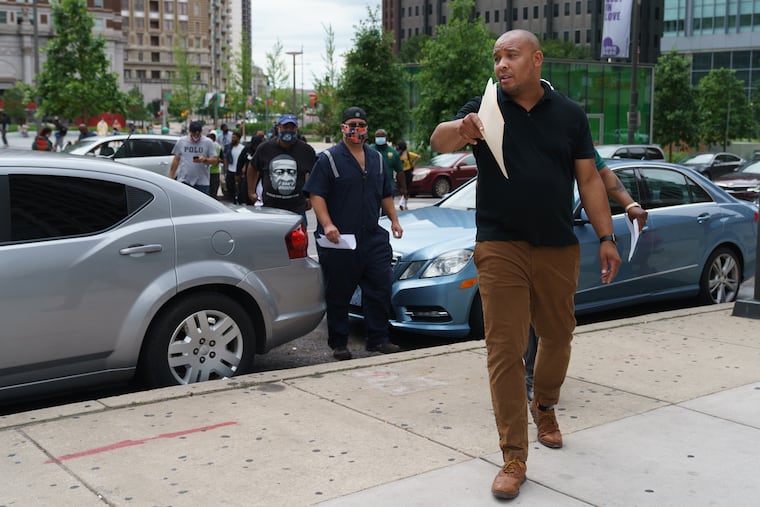Philadelphia set to be first U.S. city to protect workers against retaliation for calling out coronavirus conditions
It’s a victory for the local labor community and a marker of what it can accomplish when sometimes disparate groups come together.

City Council unanimously approved a bill Thursday morning that will make it illegal for employers to fire, discipline, or otherwise retaliate against workers who speak up about unsafe coronavirus conditions.
The vote came during Council’s last session before summer recess and as employees in Philadelphia get called back to work during the city’s less-restrictive “yellow” reopening phase.
If signed by Mayor Jim Kenney, who has already expressed his support, Philadelphia will become the first big city in the country to give workers stronger legal protection against this kind of retaliation.
“This bill protects the most essential resource America has: the worker,” said Richard Hooker, head of UPS union Teamsters Local 623.
It’s a victory for the local labor community and an indication of what it can accomplish when sometimes disparate groups come together. The bill, which made it through the legislative process in a month, came out of a coalition of union and nonunion worker groups who were lobbying for pandemic worker protections. More than two dozen labor groups supported the bill, introduced by Councilmember Helen Gym.
New Jersey’s state legislature is considering a similar bill, backed by worker center Make the Road New Jersey.
A federal law already prohibits retaliation against workers who call out unsafe conditions, but the federal Occupational Safety and Health Administration has a “very poor track record” of handling such complaints, said former OSHA official Debbie Berkowitz. In most cases, she said, the complaints are dismissed.
Melissa Bova, a spokesperson for the Pennsylvania Restaurant and Lodging Association, said her industry group recognized “the necessity of keeping guests and employees safe during this crisis.”
“Employees should feel safe in their workplace, and if safety measures and requirements are not being followed, that should be investigated,” she said, adding that the PRLA appreciated a change in the bill that said workers cannot refuse a work assignment if a city or state inspection finds a business compliant with COVID-19 safety guidelines.
The Chamber of Commerce for Greater Philadelphia did not immediately respond to a request for comment.
During the pandemic, essential workers — from nursing home aides to sanitation workers to grocery store clerks — said their employers weren’t doing enough to keep them safe on the job. Some hosted rallies or conducted work stoppages to pressure their employer to pay attention to their concerns. But not all workers feel empowered to organize such actions, especially if they don’t have the backing of a union or worker group or if they are of a marginalized identity.
Rhiannon DiClemente, a lawyer at Community Legal Services of Philadelphia, said that she and her colleagues kept hearing from undocumented clients about employers threatening to call the police or Immigration and Customs Enforcement when workers asked for better safety precautions on the job. And a National Employment Law Project report published earlier this month found that Black workers are more likely to face retaliation for being vocal about unsafe conditions.
“I know what it means to be a Black worker,” said Corean Halloway, a hotel worker and member of union Unite Here. “As a teenager in South Carolina, I fought to desegregate my high school. … Today, we need to continue fighting. These protections are a part of that fight.”
If the bill becomes law, there is still a major hurdle to its effectiveness: enforcement. While Philadelphia has increasingly passed cutting-edge worker legislation, it has not historically been effective at educating the public about these laws or enforcing them. In the last year, this has begun to change, in large part due to pressure from advocates who lobbied for worker laws. The Mayor’s Office of Labor, which enforces these laws and recently became a permanent city department, is slated for roughly $300,000 budget increase over last year as its responsibilities grow, though it’s not clear how much of that budget will be for the team focused on enforcement.
The Philadelphia Inquirer is one of 21 news organizations producing Broke in Philly, a collaborative reporting project on solutions to poverty and the city’s push toward economic justice. See all of our reporting at brokeinphilly.org.